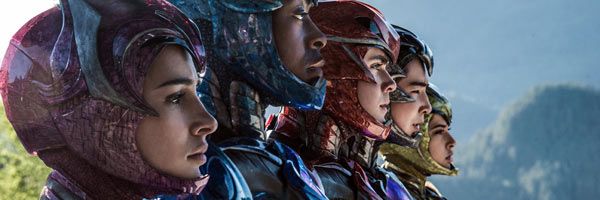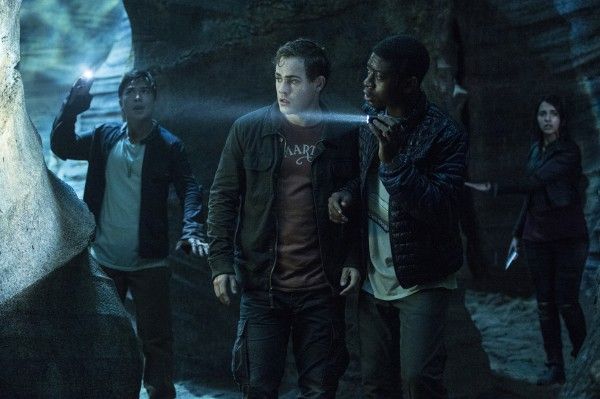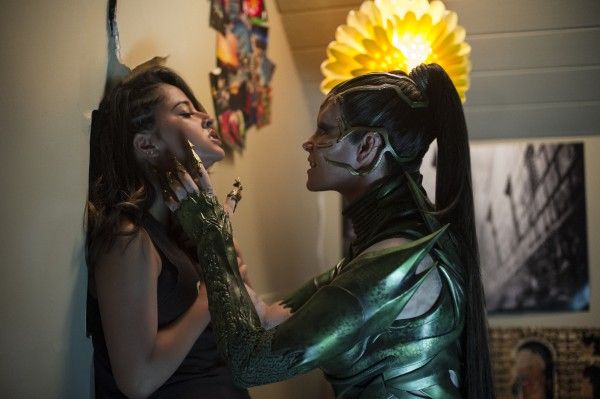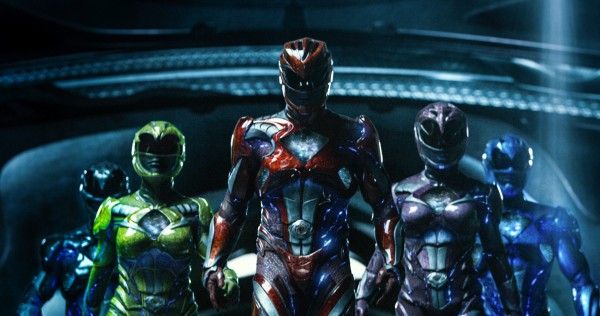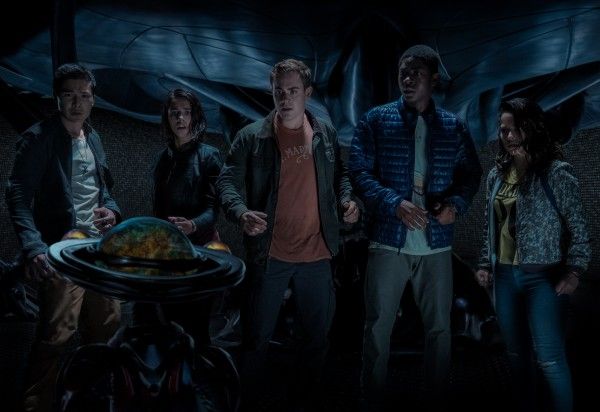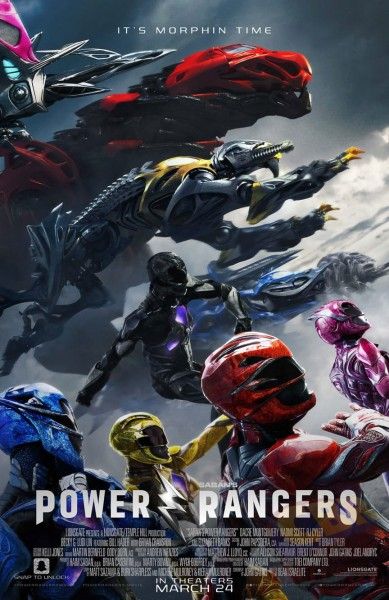The last thing the world needs right now is another superhero franchise, and few would have pegged Power Rangers as a worthwhile entry in the genre, but here we are. While the Power Rangers franchise has had many different incarnations throughout its run—including two feature films—this reboot goes back to the show that started it all, 1993’s Mighty Morphin Power Rangers, and culls together a new story with a new take on the world featuring some familiar characters. The film toes the line between silly and serious, and while it doesn’t always hit the mark, it’s ultimately a charming, fun, and endearing affair thanks to a strong ensemble cast and a clear vision from director Dean Israelite.
The film is the ideal version of a franchise reboot in that it pulls the basic premise of its source material as well as a few specific nods here and there while ultimately standing as its own story. Five high school kids ranging in relationship to one another from acquaintance to stranger happen upon five power coins in a gold mine in their local town, and are subsequently called upon to become Power Rangers and save the sleepy Angel Grove from imminent doom.
The teen characters are all misfits in one way or another. There’s Jason (Dacre Montgomery), the high school football star who secretly wants much more out of life than being the small town sports hero; Billy (RJ Cyler), a kid with mild autism who suffers from being bullied; Kimberly (Naomi Scott) a popular cheerleader who suddenly finds herself on the outside of her friend circle; Trini (Becky G), a girl with an exceedingly normal family life who feels like she doesn’t fit in; and Zack (Ludi Lin), a seemingly nuts adrenaline junkie who also serves as caregiver for his sick mother.
After finding the power coins, Jason, Billy, Kimberly, Trini, and Zack are pulled inside an abandoned spaceship where they meet the android Alpha 5 (Bill Hader) and Zordon (Bryan Cranston), a former Power Ranger himself who now must serve as mentor so the new Power Rangers can get into fighting shape and stop Rita Repulsa (Elizabeth Banks) from destroying the world.
Honestly, the exposition dump of what Rita is after and why she wants it is the least interesting part of the movie. Where Power Rangers excels is in its interpersonal relationships, as these five actors bring a lot to the material, shading out these characters as complex kids rather than familiar archetypes. Jason, for example, is an interesting twist on the “jock” character, while Billy no doubt serves as a role model for many as the first bigscreen superhero with autism. Even Trini’s story is more complicated than it seems, as the film subtly implies that she’s a young girl struggling to find her sexual identity. While it’s not as explicit as one may have hoped, there’s a strong case to be made for our first LGBTQ blockbuster superhero here, and that’s a neat thing.
This is a diverse group of individuals—the movie’s basically Chronicle meets The Breakfast Club—but what makes this story stand out from all the other superhero franchises around is that the film isn’t entirely about saving the day or settling internal squabbles. In order to fully become Power Rangers, these kids must care more about others than themselves. This theme of compassion, of empathy, is a welcome change of pace, and to my surprise it actually results in an emotionally engaging story.
The performances are, for the most part, impressive. Just as he did in Me and Earl in the Dying Girl, RJ Cyler pretty much steals the show here. The guy is a massive young talent, and his funny and sweet portrayal of Billy is destined to be a crowd favorite. Banks’ Rita Repulsa, meanwhile, sticks out like a sore thumb. The film takes a very grounded approach to the story and characters, but Banks—who shares very few scenes with anyone besides herself and her CG monster Goldar—is turned up to 11. If this were a very faithful adaptation of the campy TV series she’d be right at home, but in the context of the film she’s quite over the top and doesn’t really jibe with the rest of the movie.
Indeed, while the film mostly works, there are times when Israelite isn’t quite sure which tone he wants. The film opens with an impressively shot car chase sequence, but other times Israelite and cinematographer Matthew J. Loyd’s naturalistic shakycam photography gets downright nauseating. It works more than it doesn’t, and Israelite is smart to highlight the poppy color of the costumes once the Power Rangers suits arise, but there are a few scenes that feel like they’re from a different movie entirely.
Similarly, while the characters are endearing, some of the “heart-to-heart” moments fall flat due to clichéd dialogue. I’m actually impressed at how few times the characters are forced to spout groan-worthy platitudes—again, this is a movie full of pleasant surprises—but when they are it’s tough to bear.
On the whole, though, Power Rangers is quite fun and charming as all get-out. A story of characters who become heroes only when they learn empathy and how to understand and embrace each other’s differences is one that feels oddly relevant right now, and Israelite assembled a terrific young ensemble without a single weak link. The film can get a little dicey with tone, and at over two hours is a bit on the long side, but—and I can’t believe I’m saying this—these are characters I’d genuinely like to spend more time with in future movies. Welcome to the superhero party, Power Rangers.
Rating: B

